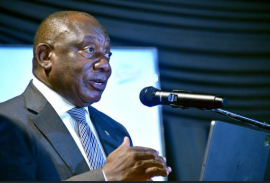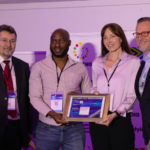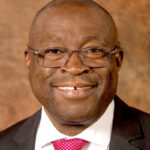President Cyril Ramaphosa has used the occasion of World Teachers’ Day to refocus the spotlight on school safety.
“We are concerned about the apparent increase in incidents of violence against teachers and learners, often perpetrated by criminals who come into schools. We need to work together, across society, to ensure that our schools are safe,” the President said at the National General Council of the South African Democratic Teachers’ Union (SADTU) held in Kempton Park, Gauteng.
The President said incidents of violence, abuse and bullying in the country’s schools are a grave concern, which requires everyone to work together towards ensuring that schools are safe.
“We are concerned about the apparent increase in incidents of violence against teachers and learners, often perpetrated by criminals who come into schools. We need to work together, across society, to ensure that our schools are safe.
“This means that SGBs [school governing bodies], CPFs [community policing forums], communities, local businesses, unions and the police need to work together to ensure that every single school in the country is a place where educators and learners feel secure and safe,” the President said.
Celebrating teachers
President Ramaphosa said World Teachers’ Day must be used to reflect on and celebrate the important role played by teachers throughout the world in advancing human progress.
Teachers, he said, are responsible for the development of the country’s most valuable resource — children.
“More than any mineral or natural asset, more than any product or industry, the children of this country will shape our future and determine our fortunes.
“That places a great responsibility on teachers to educate and prepare our children well. It also places a great responsibility on the rest of society to support, respect and celebrate our teachers.
“Let us use this occasion to appreciate and celebrate the dedicated teaching force that we have in this country.”
The President commended the vital contribution teachers make to the country’s future by nurturing and shaping the minds of the young.
“Throughout this difficult [COVID] period, our teachers have become symbols of resilience and have remained loyal to their calling – to educate the leaders of tomorrow. We remember and pay tribute to all the teachers who succumbed to COVID-19.
“In their honour, we must do everything possible to guarantee the safety of teachers, and ensure that the teaching and learning environment remains conducive at all times.
“More than any other sector, it is teachers who are the midwives for a new breed of patriotic citizens, who are conscious of their duty to their country and fellow citizens; a new generation that will refuse to engage in crime, corruption and gender-based violence.”
President Ramaphosa said the country looks to the educators to empower learners with the knowledge, skills, values and attitudes to take informed decisions that promote environmental sustainability, economic development and a just society.
Fourth Industrial Revolution
As the country works to ensure that schools are suitable places for learning, the President said they must be equipped for the challenges and opportunities of the Fourth Industrial Revolution.
“As we undertake far-reaching reforms in our telecommunications industry and increase our investment in infrastructure, we need to ensure that schools and other educational facilities are the first beneficiaries of ICT infrastructure.
“We call on the private sector to work with us to invest in the upgrading, modernisation and expansion of our school infrastructure to benefit all learners, particularly in under-served areas.”
In a world that is becoming increasingly digital, the President said SADTU has a significant role to play in ensuring that its members are ready for new technology and new subjects as part of the shared effort to get learners ready for this new world.
He emphasised that teachers need to educate learners about the benefits and risks associated with emerging media and technology.
“We understand that the Teacher Union Collaboration that is responsible for equipping our teachers with the skills and capabilities to implement coding and robotics in schools is being well received by teachers. We commend SADTU for the role it is playing in the training of 32 000 of our teachers in this regard.”
The President said the basic education sector needs to work collaboratively with the Department of Higher Education, Science and Innovation to advance the Fourth Industrial Revolution in the education system.












